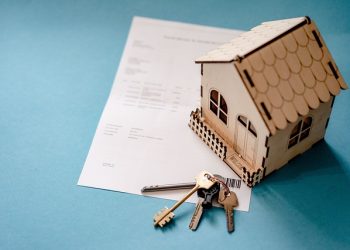Buying property is a big deal, and there are lots of things that you should check for when you go and view. From making sure that you have the right survey booked in, to researching the surrounding areas, We Buy Any House have outlined some important things that you should look out for so you know everything that you need to about the house before you progress!
- House surveys
Getting your survey is an incredibly important part of buying a house, as it may reveal problems that could cost thousands to repair that you wouldn’t know about from a standard viewing. There are a few different surveys, which you can choose from depending on the level of detail that you need and the type of home you want to buy:
- A Condition Report:
This is the cheapest, simplest survey that you can get. It works on an easy-to-read traffic light system, with any green labelling indicating areas are in good shape, orange showing any potential problems that could arise, and anything in red being severe issues that need some work right away. These type of surveys won’t include any advice for you but will clearly outline any defects and potential risks to give you a good idea of what to expect.
- A Homebuyers Report:
This type of survey will give you much more detail and information about any obvious problems like subsidence or rot, but it’s a non-intrusive survey style, so the surveyor will look at the surface of the property and not more detailed. There is also another, more detailed version of this report that includes a valuation for you for a slightly higher price.
- A Home Condition Survey:
This survey goes deeper than a homebuyers report and includes more helpful information for a buyer, including an assessment on potential broadband speed and more intrusive damp tests. They are also each individually checked and assessed to confirm that the data being provided is completely correct.
- A Building Survey:
This is the most extensive survey that you can get, providing a very detailed and helpful report. A surveyor will do a full, in-depth assessment of the house, checking the spaces behind walls and between the floors to gain as much information as they possibly can. It will also offer the buyer advice on any repairs that will need doing, as well as giving a rough idea of the potential costs and timeframes to carry out these jobs and give information of what might happen if the problems aren’t dealt with.
Not getting one of these surveys on the house you want to buy could cost you a huge amount if you find any severe issues after you’ve officially completed, so having a survey carried out before is vital.
- Location
When you buy your house, you want to know confidently what everyday life is going to be like in the area. Spending some time getting familiar with the location and making sure that you’re going to be happy to stay there is a big factor when you’re looking to buy a house.
You should visit the property at different times on various days of the week to give you a better overall idea of the area, so you can see if it’s very busy during rush hour or if there’s excessive noise in the evenings that would disrupt you. Often, buyers tend to view the property at the same time when they do multiple viewings on a Saturday morning around their working week which won’t give a fair representation of the area. Viewing at various times and on different days will show you more realistically about what everyday life in the property can be like.
It’s also recommended to look at your daily commute and find out how long it will take on a standard day from the house you’re looking at buying. Depending on your location and the typical traffic in the area, you may find that your commute starts taking longer than it does at the moment, which can impact your decision about buying.
- Plumbing
Checking the plumbing in the property, especially the water pressure, is often something that buyers will forget to do when they first view it. Bad water pressure can cause all sorts of problems in a house, especially if it’s over multiple floors. You can test the pressure easily when you view by testing the taps in any bathrooms and the kitchen, but you can also just ask the agent and the seller. They have to be honest with you and cannot hide any problems in the house that could result in you pulling out.
In houses that have poor pressure, you might find that you can’t use certain appliances at the same time, or that you won’t be able to have taps running both upstairs and downstairs, which can become irritating very quickly in homes with several people in it. Poor pressure can sometimes be resolved if the issue is simply down to blocked pipes or a leak on the line, but for some houses, especially old ones, simply don’t have the best pressure anyway, so keep this in mind when you’re viewing if it is going to be a big concern.
- Specific needs and wants
When you look at buying property, you need to know before you start booking in any viewings exactly what you want and need to make sure that you’re only looking at houses with those features. These will probably change depending on your personal preferences and any physical requirements, so spend some time thinking about what you wish your current home had that would make life easier for you.
It’s also important to clarify the difference between your needs and wants. A house might offer everything that you want, but if it doesn’t cover the needs, it will ultimately make it a pointless option. For a house that provides everything that you need but is missing one or two of your wants, however, you might decide to reconsider, depending on the other properties that you’re looking at and the various other factors involved.
These tips will help you go into your purchase much more confidently and avoid any nasty surprises down the line, letting you enjoy your new home!





